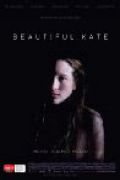
Directed by
Rachel Ward
90 minutes
Rated MA
Reviewed by
Bernard Hemingway

Beautiful Kate
Synopsis: Ned (Ben Mendelsohn) returns home because his father (Bryan Brown) is dying and this will be his last chance to face the demons of his family’s past.
Beautiful Kate is a gracefully-made film. With its setting of a small timber frame house in a dusty and remote landscape encircled by tall hills I could not help but think of Steve Jacobs’ currently screening Disgrace, a film which tonally and thematically bears comparison with first time feature director Rachel Ward’s offering. Social and physical isolation is an important aspect of the two films, providing both a motive and a context for their turn of events. However, whilst Ward is comparably ambitious in her choice of material she does not bring it off with as much success.
Partly, I believe, this is due to the script which Ward wrote and based on a novel by Newton Thornburg (who wrote the original text of Ivan Passer’s Cutter’s Way, 1981). Thornburg is an American writer and whilst Ward has to some extent relocated the narrative to country Australia, its story of mis-directed love and consequent tragedy seems more like something one would expect of Sam Shepard or possibly Larry McMurtry (the original novel was set in Idaho, which from filmic evidence is one of America’s weirder States). There is still too much of an American sensibility in the script for it to seem credibly Australian. This appears to be a quite conscious choice. The run-down farm and its house looks like some dirt-poor sharecropper’s bolt-hole, Ned’s wannabe Hollywood actress girlfriend quotes from Gone With The Wind and the locals dress as cowboys, not to mention that the rather intrusive soundtrack is in a U S of A Country/Rock mode. Aside from the Australian accents and specific references to kangaroos and such like, the setting is so generically rural that when Aboriginals appear at the film’s end it seems a rather incongruous add-on.
It is not, however, just the contextual values which seem to be missing. The characters also have not assumed new cultural identities. Bryan Brown’s single father is the hardline paterfamilias seen in innumerable American films, Maeve Dermody’s Toni, an improbable piece of white trash and what sort of writer Ben Mendelsohn’s Ned is supposed to be is anyone’s guess (what wordsmith would say “I wouldn’t swerve for no bloody kangaroo”?). In an American film these things might pass without comment by a local audience but in Beautiful Kate they are just a few of the many details which keep the film from being convincing.
Casting too is a problem. Mendelsohn does a decent job in the lead but the rough and ready laddish charm which is his stock-in-trade does not suit the part of a world-weary, angst-laden writer. Rachel Griffiths seems too big for her relatively small part and Bryan Brown (the director’s husband) is, well, Bryan Brown. Even on his death-bed he remains a cocky bastard. Each actor remains too identifiable as themselves to have much dramatic effect. When, towards the film’s end, Brown and Mendelsohn are on the edge of the dried-out dam and the dying father explains to his 40 year old son that he tried to take the place of his children’s dead mother the scene does not come off largely because there has been no evidence of the father's maternal efforts and because neither actor has managed to cross the emotional bridge required of them. If anything, it is the flashback scenes with unknown actors that work best of all. In this respect, Sophie Lowe as the titular Kate was a real find. Her combination of burgeoning sexual allure and tomboy-ish innocence are perfectly suited to the part (the film’s poster does not do her justice) and it can only be hoped that Hollywood doesn’t get wind of this untainted Antipodean sex kitten.
Conceptually and formally Beautiful Kate is a commendable film but like so many first-time films that don’t realize their full potential one can only wish that Ward had held off making it until she had more experience. Then again, given the nature of the Australian film industry, had she decided to defer it, it may never have been made at all. On the evidence of this film she's a dedicated, discerning and intelligent force. Let's hope she gets to make another.

Want more about this film?


Want something different?




